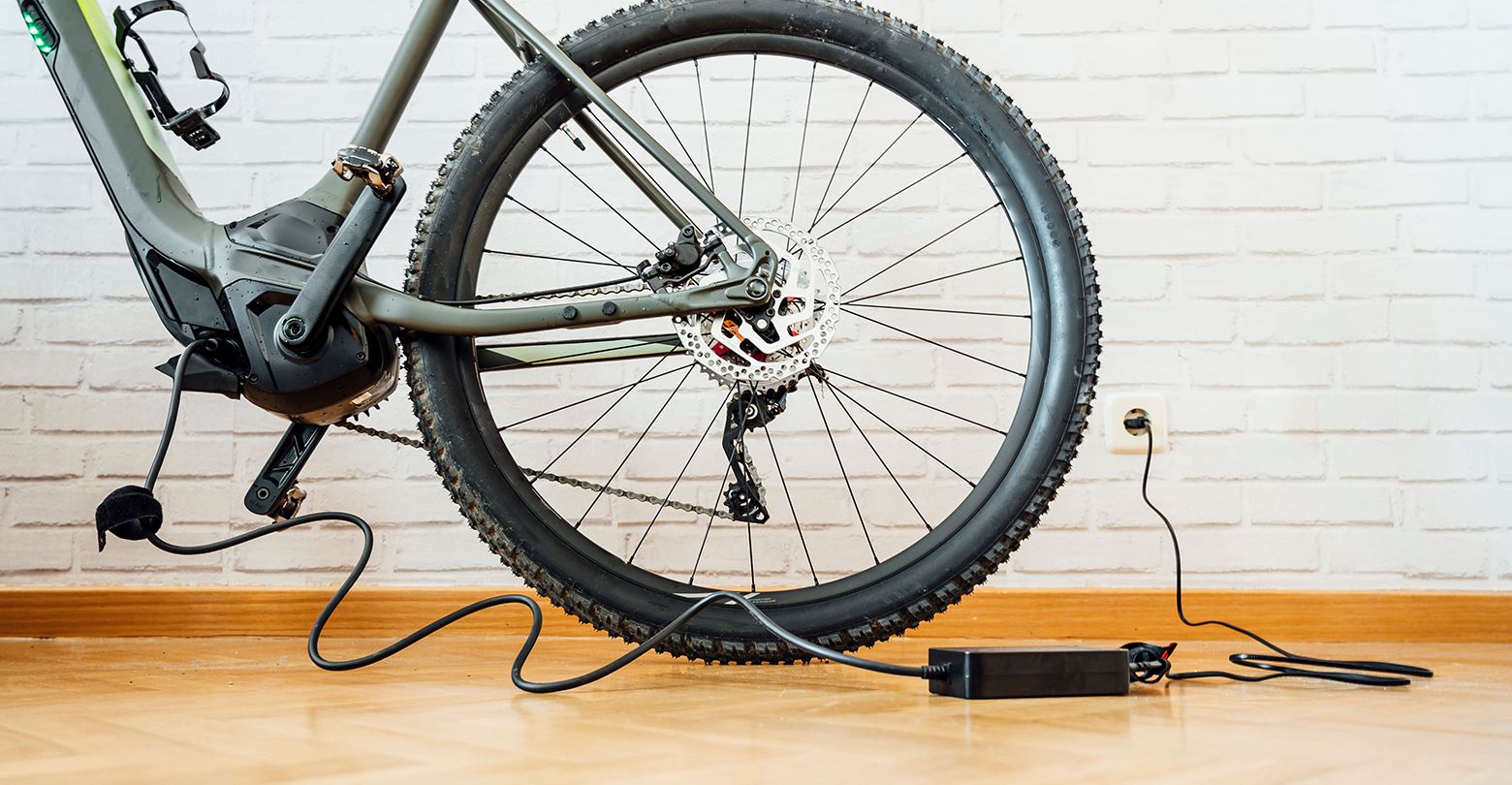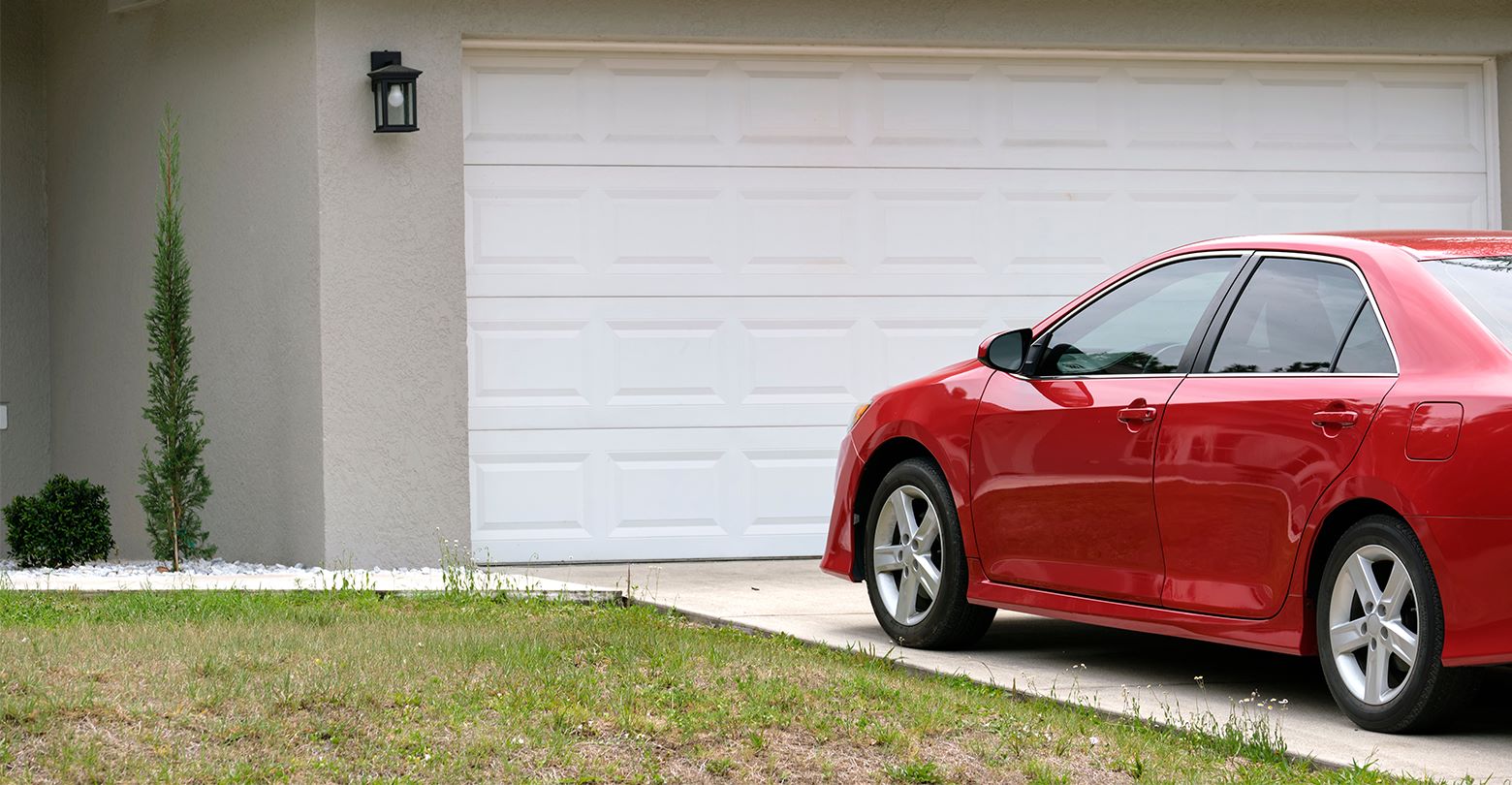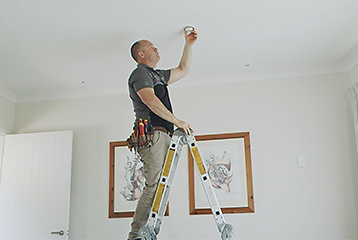Because your home is kinda like your castle, having someone break into it isn't the kind of thing that people like to think about.
But, there are things you can do to secure your home and help deter burglars and opportunists.
Burglars thrive in the dark, so investing in external sensor lighting around your home might help put them off. When motion is detected, the lights come on and the burglars (in theory) head for the hills.
Sensor lights are great for your safety too. They help your family members and visitors find their way to the door, they make stairs easier to negotiate and they shine a light into your bag while you’re fumbling for the keys. If you want to go a step further, you can put external lights on timers – they turn on at sunset and off at sunrise.
It’s a time-honoured burglar trick to ring your front door bell to see if anyone’s home. If you’re not, your home immediately becomes a more attractive burglary target. But what if you can answer the front door from anywhere in the world and talk to the would-be burglar like you’re right inside?
Video door bells give you this ability. When someone rings the door bell, they're captured on camera and a call goes to an app on your phone. Through the app, you can connect to a speaker and ask the caller what they want, giving them the impression you’re at home.
When you move into a new home, it’s smart to change the locks, because you have no idea who has a copy of your door keys. Over the years, people hand out spare keys to family and friends, not always keeping track of where those keys are. The same thought applies to a home you’ve lived in for years. How many keys have been passed onto other people, including pet and house sitters? Changing the locks isn’t a big process; often the locksmith only has to change the lock cylinder. There's also rekey kits that let you change the pins inside the cylinder yourself. Or you could move into the future and get a smart lock that is controlled remotely from your phone.
Getting locked out of your own home is an exercise in frustration. For this reason, many Kiwis have a spare key stashed somewhere outside. Burglars are really good at guessing where the spare key lives. The pot plant near the door and under the mat are two common places for a spare key. They also know to look for the ‘magic rocks’ that have a key cavity inside them. If you’re going to have a spare key hidden somewhere outside, be as inventive as possible.
A high, well-maintained fence around your property hides your stuff and slows the progress of a burglary, especially if it has combination locks that make access complicated. If you already have a fence, check that it’s in good shape and look at ways to keep the whole property locked up. If your place is currently unfenced, price it up. You might be able to share some of the cost with neighbours on either or both sides.
A surprising number of people have a home security system but never use it. If you find yourself in this category, and you’re not setting your alarm because you’re afraid of disturbing the neighbours with false alarms, get your system serviced so that you have the confidence to set it every time you go out.
There are more options than ever for home security systems. If you’re short on time, you can have a professional system installed and have it monitored. If you’re a handyperson, you can put together a very effective DIY system using a range of different technologies, so do some research on the best system around for you.
Most new options include video cameras that allow you to see what’s happening at your home from anywhere in the world. Webcam imagery is accessible from an app on your phone. Front door bells that are linked to a video camera are huge for home security, because it means you can speak to the caller from your phone. They won’t know you’re not inside.
Being neighbourly helps to keep your home safe. When you’re heading away, let your neighbours know that your home will be empty. And if you don’t have a neighbourhood watch kind of group in your street, consider starting one. Do a letterbox drop to see who wants to join, then start a database. You could even organise a ‘bring a plate’ social event to make it easy for everyone to meet. All sorts of things get easier when you know your neighbours, like getting the mail collected, cats fed and rubbish bins wheeled to the curb.
Filling your Facebook with images of you on holiday could be an open invitation to burglars, so change settings to make sure your posts are only viewable by friends and family. If you still have a landline, keep your voicemail message generic, i.e. don’t mention that you’re away on holiday. Burglars sometimes ring landlines during peak holiday times to find messages that confirm the home owner is away.
If you do get burgled, call the police and don’t mess with the scene. They may want to look for clues and dust for fingerprints. If you arrive home and discover an intruder inside, try to get outside without being noticed and ring the police immediately. Memorise whatever details you can about the intruder.
Since the world can be kinda unfair sometimes, it's best to protect what's important with AMI House insurance. More information visit www.ami.co.nz/home-insurance


